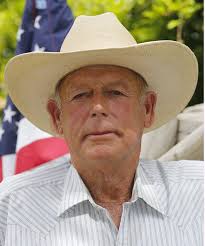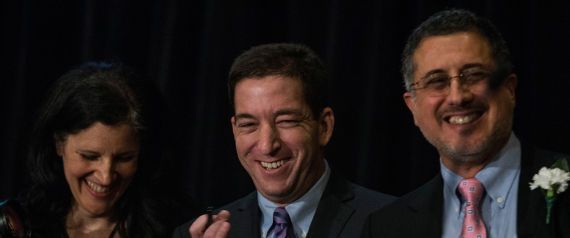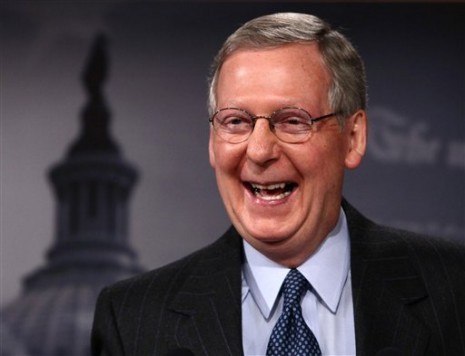 |
| Am I irrelevant? You betcha! |
Somehow, during the time when Sarah Palin was HUGE, we survived. Now, Sarah is, by the lights of Wapo, gone SMALL. wow.
Aye, Sarah, we hardly knew ye. B'bye.
 |
| Am I irrelevant? You betcha! |
 |
| Yes, this is a favorite bar of mine in Amsterdam. I will drink there soon. I will raise a glass to, uh, the absence of American politics for four weeks. Fat chance! |
 | ||
| This photo was on
today's WaPo front page, accompanying an op-ed praising war as a tool of peacemaking. Holy shit, am I glad I'm leaving for Yurp, socialist paradise, just in time! |
 |
| Hey, Republicans, you can put it back in your pants now. |
 |
| Chief Justice John Roberts: fingers in the ears doesn't end racism. |
 |
| LA Clippers owner Don Sterling: Couldn't you have noticed that blacks are the stars of your show? |
For liberals as well as conservatives, there’s an upside to that outcome, despite the expected denunciation by groups like the NAACP and the ACLU. According to Richard Kahlenberg of the Century Foundation, who has studied affirmative action for years, in seven of the states that have banned it, leading and other public universities have maintained black and Latino enrollment and admitted more low-income students. As I explained in October, “Some of the schools have taken income and wealth and neighborhood into account. Some have plans that admit the top 10 percent of high school graduates statewide. Three have banned legacy preferences.” Those are strategies for achieving racial diversity that also improve socioeconomic diversity, which at many selective schools is sorely lacking. A year ago, a new study resoundingly showed that there is a “hidden supply” of high-achieving low-income students that most schools don’t do enough to recruit. Many of these kids don’t even apply to top colleges: The schools are too unfamiliar and seem unattainable. But if the students have better information, and universities make a bigger effort to reach them, they will come. If ruling out explicitly race-based preferences pushes the schools to do more on this front, that’s a real silver lining.She goes on to point out, however, that this does little to advance diversity, with schools in states that have banned affirmative action in public-university admissions seeing a sharp decline in minority students on campus.
 |
| Cliven Bundy: yapping his way to isolation. |
 |
| Phil Jackson: He got Kobe and Shaq to play together and tamed Rodman with the Bulls. Does he have the stuff to run our new Constitutional Convention? Just maybe. |
 |
| Cliven Bundy: The Rancher on Horseshit Mountain. |
"I've lived my lifetime here. My forefathers have been up and down the Virgin Valley here ever since 1877. All these rights that I claim, have been created through pre-emptive rights and beneficial use of the forage and the water and the access and range improvements," Bundy said.
Clark County property records show Cliven Bundy's parents bought the 160 acre ranch in 1948 from Raoul and Ruth Leavitt.
Water rights were transferred too, but only to the ranch, not the federally managed land surrounding it. Court records show Bundy family cattle didn't start grazing on that land until 1954.
The Bureau of Land Management was created 1946, the same year Cliven was born.
"My rights are before the BLM even existed, but my rights are created by beneficial use. Beneficial use means we created the forage and the water from the time the very first pioneers come here," Bundy said.Every claim he makes is horseshit. Point two:
[...] What about Bundy’s claim that his forebears bought the land he is now accused of trespass grazing upon? This land was once Mexican land, and was won by the United States after the Mexican-American War. It is part of what is known as the “Mexican Cession.” All of Nevada, California, Arizona and most of New Mexico were part of the Cession. Much of this land was privatized under various grants and laws such as the Homestead Act and the Desert Lands Act, plus mining claims. Several million acres were granted to Nevada for state lands, but those lands that were not privatized have always been Mexican lands or United States lands owned by the U.S. government. Before the Taylor Grazing Act, these government lands were called “the public domain.” They could be privatized, as mentioned, under the Homestead Act and such, but the acreage allowed per homesteader was limited to 160 acres.
[...] The result was disaster because the operator to find green grass and eat it first won out, promoting very bad grazing practices. That was the reason for Taylor Grazing Act — ranchers and others could see the public domain system led to disaster on the ground. Therefore, the more powerful ranchers with “base” private property received grazing permits. This got rid of the landless livestock operators. Taylor Grazing was administered on the ground by the U.S. Grazing Service. Now, ranchers with grazing permits had to pay a grazing fee to use their permits.
[...] In 1946 [the year Cliven Bundy was born] the Bureau of Land Management was created by executive order of President Truman to replace the Grazing Service. The Service had been defunded in a dispute between the House and the U.S. Senate. The BLM has since been affirmed by law rather than a mere executive order. It is supposed to manage the public lands for multiple uses and for sustained production (“yield”) of renewable resources such as grass. As before, you need a grazing permit for cattle, sheep, goats, or horses to legally graze. It is a privilege, not a right, and this has been firmly stated by the U.S. courts.Bundy doesn't even know the history that proves his horseshit is horseshit. Now, point three, that he didn't say what they say he said:
Like everyone else to ever be quoted saying something untoward, Nevada rancher and new conservative folk hero Cliven Bundy, who just happens to be a huge racist, said this afternoon that his comments about black Americans being better off as slaves, as published in the New York Times, were inaccurate and taken out of context. They most certainly were not. "I didn't say nothin' about pickin' cotton," Bundy told Alex Jones on the radio today. "This is bombshell. This is bombshell," said Jones. "You're telling me you did not say 'picking cotton'?"
"No, I did not say pickin' cotton," said Bundy. Let's go to the tape.
Oops, there it is, at 1:45: "They never learned how to pick cotton ... were they better off as slaves, pickin' cotton?"And just to finish off this trip to horseshit mountain, read this piece in Salon that lists the crap that conservatives threw together in defend of Bundy. It's hilarious, or would be if it weren't for how close to an armed insurrection we came at the insanity's peak.
 |
| More proof of Hannity's insanity? |
 |
| The home that proves the rule, Thomas Piketty-style: Hyatt Hotel heir Anthony Pritzker's 53,000 sq. ft. mansion. |
Let's talk about the study. If you had 30 seconds to sum up the main conclusion of your study for the average person, how would you do so?
I'd say that contrary to what decades of political science research might lead you to believe, ordinary citizens have virtually no influence over what their government does in the United States. And economic elites and interest groups, especially those representing business, have a substantial degree of influence. Government policy-making over the last few decades reflects the preferences of those groups -- of economic elites and of organized interests.Next, on the notion that voters are dumb (love the conclusion he draws, I boldface the key point):
There are criticisms of your study within the academic community. Some say public opinion surveys are a poor measure because people don't understand policy or that their stated preferences are self-contradictory. Tyler Cowen says citizens vote retrospectively so it's better to judge on outputs rather than whether voters get their preferred inputs. How do you respond?
These are all good questions. They're questions I address in some length in my book, "Affluence and Influence." There is some truth to some of these perspectives. But in a nutshell I think citizens overall have fairly sensible policy preferences which appear not to change much if citizens have an opportunity to learn more and debate the policy and view pros and cons.On the perceived notion that Democrats are more in tune with middle- class wishes:
Which party, Democrat or Republican, caters to the interests of the rich more? Does your research find them to be equal or is one more responsive than the other?
We didn't look at that in this paper. Other work I've done suggest it depends. There are a set of economic issues on which the Democratic party is more consistently supportive of the needs of the poor and middle class. But it's by no means a strong relationship. Both parties have to a large degree embraced a set of policies that reflect the needs, preferences and interests of the well to do.On whether or not ordinary citizens vote against their own self-interests and whether or not it matters (hint: they do, and it doesn't):
It seems to me the paradox here is that sometimes non-rich people favor an agenda that supports the rich. For instance, middle class tea partiers want low taxes on the highest earners, just as Steve Forbes does. Isn't that still democracy at work, albeit in an arguably perverse way?
Yes, absolutely. I think people are entitled to preferences that conflict with their immediate interests -- narrowly conceived interests. That may be an example of that. Opposition to the estate tax among low-income individuals is another. But what we see in this study is that's not what this is happening. We don't look at whether preferences expressed by these different groups are consistent or inconsistent with their interests, narrowly conceived. We just look at whether they're responded to by government policy-makers, and we find that in the case of ordinary Americans, they're not.Wow. Read all of the interview. My key takeaway is that voters aren't dumb, but they can get bamboozled into supporting policies that aren't in their best interests, and that it sort of doesn't matter anyway, except that it's possible for pendulums to swing, and it doesn't hurt if we push the pendulum if and when we get the chance. Otherwise, uh, we're sort of screwed.
 |
| Watch me reach into this hat and pull out absolutely nothing for the working class! |
 |
| The wealthy elite: They're a tribe all right... |
We oppose collectivism. We approve of individualism. We highly recommend Taking Personal Responsibility™. While people are doing that, we're taking as big a slice out of their personal wealth and productivity as we can, and take that wealth and productivity and turn it into political power. For whom? Our elite tribe, our very special collective, the one that we say we don't belong to. Because we are free, we love liberty, we are individualists, and we Take Personal Responsibility™.This is our Wizard-of-Oz-behind-the-curtain moment. Suckers who love the twisted message -- that no one or no elite collective is pulling the levers behind any curtain -- are the patsies who Work Hard And Play By the Rules.
It's not much, this difference between Democratic and Republican policy, but, as Mercutio said of the mortal wound he suffered in a sword fight with Tybalt in Romeo and Juliet, "Ay, ay, a scratch, a scratch; marry, 'tis enough."So it’s worth pointing out it does make a difference [which party is in power]. Yes, Democrats pay a lot of attention to plutocrats, and even make a point of inviting Patrimonial Capitalism: The Next Generation to White House galas (I would have missed that, even though it’s in my own paper, but for Kathleen Geier. Thanks!). But it’s quite wrong to say that the parties’ behavior in office is the same. As Floyd Norris points out, Obama has in fact significantly raised taxes on very high incomes, largely through special surcharges included in the Affordable Care Act; and what the Act does with the extra revenue is expand Medicaid and provide subsidies on the exchanges, both means-tested programs whose beneficiaries tend to be mainly lower-income adults. The net effect will be significant losses for the super-elite — not crippling losses, to be sure, and hardly anything that will affect their elite status — and major gains to tens of millions of less fortunate Americans.
 |
| Walmart: a store chain the poor can work in, shop in, die in. |
 |
| The Tea Party: White people acting white. |
Piketty’s dark vision relies, in part, on economic models I am unqualified to assess. But it also relies on straightforward analysis of recent trends in Western economies, and here a little doubt-raising is in order.
Douthat, with an assist from Scott Winship, in essence is saying, yeah, the rich are enormously richer than the middle class, but the middle class actually have a few more bucks and they own their own homes for heaven's sake, so don't pick on the rich because the new model -- you know, where the rich have just about all the money -- is conceivably "sustainable" for the middle class. In other words, if the middle class would just adjust to its lowered expectations, scraps will be had for all. Because it's sustainable!In particular, as the Manhattan Institute’s Scott Winship has pointed out, Piketty’s data seems to understate the income gains enjoyed by most Americans over the last two generations.These gains have not been as impressive as during the post-World War II years, but they do exist: For now, even as the rich have gotten much, much richer, the 99 percent have shared in growing prosperity in real, measurable ways.
This possibility might help explain why the far left remains, for now, politically weak even as it enjoys a miniature intellectual renaissance. And it might hint at a reason that so much populist energy, in both the United States and Europe, has come from the right instead — from movements like the Tea Party, Britain’s UKIP, France’s National Front and others that incorporate some Piketty-esque arguments (attacks on crony capitalism; critiques of globalization) but foreground cultural anxieties instead.
Well done, Ross Douthat. You take what little you will acknowledge as valid in Piketty's critique of capital's dominion over labor and hand it over to white nationalists who also inhabit your happy place, i.e. family and faith, sovereignty and community. I'm sure I knew that the true believers have long claimed faith and family as their own special province, but I didn't know that the extreme right wing has properly acquired ownership of sovereignty and community, as well.The taproot of agitation in 21st-century politics, this trend suggests, may indeed be a Marxian sense of everything solid melting into air. But what’s felt to be evaporating could turn out to be cultural identity — family and faith, sovereignty and community — much more than economic security.
 |
| France's National Front: White people acting white. |
Still, the present concentration of income and wealth instinctively feels excessive. It understandably stirs resentment. We’d be better off if the rich were less so and other Americans were more so. But it’s doubtful that political action to force this transformation would be similarly beneficial. Class warfare is bruising; today, it would degrade the confidence needed for a stronger recovery.So Samuelson's prescription is to do nothing. After all, class warfare is bruising. Brilliant.
 |
| Barack Obama is, generally, a happy man. Have you noticed that? |
Conservatives were sure at every turn that Obamacare would fail, but as the numbers roll in, those convictions are looking increasingly ideological.
First they said nobody would enroll. Then they said first-year premiums would be through the roof. And later, they warned of a "death spiral," wherein premiums would go up uncontrollably. My colleague Sam Baker has written an excellent analysis of the situation, the upshot of which is that Obamacare is on a winning streak.
The next great frontier of conservative hyperbole concerns premiums for 2015, with critics warning that costs will double or even triple next year.
None of this is surprising to rational people, aka people who don't watch Fox News. What troubles me -- and those who just want good outcomes for their fellow citizens -- is that the GOP and its propaganda machine at Fox will hang on tooth and nail to the "obamacare is killing kids, mothers, and seniors," in spite of the fact that none of the bad things and most of the good things are happening as the rollout of the healthcare system known as Obamacare proceeds.As of this week, we have good evidence to the contrary. Health insurance premium rates are expected go up just 7 percent—a rate of increase much lower than what critics were predicting. And the nonpartisan Congressional Budget Office is predicting that premium hikes will be relatively modest.
 |
| If we add enough solar panels to the mix, we might solve energy shortages and global warming. Better not do that! |
But distributed energy sources also provide a clear value to utility companies. Solar generates during peak hours, when a utility has to provide electricity to more people than at other times during the day and energy costs are at their highest. Solar panels actually feed excess energy back to the grid, helping to alleviate the pressure during peak demand. In addition, because less electricity is being transmitted to customers through transmission lines, it saves utilities on the wear and tear to the lines and cost of replacing them with new ones.With solar power coming down in price to levels that make it truly practical for individuals to lower their costs and their demand, it makes no sense to tax individuals for helping to put a real dent in greenhouse gases. Again, Oklahoma loves free markets, except the one where the utility companies want to get their slice. Oklahoma hates taxes except when it doesn't.
Grid operators and utilities worry that the rise of battery storage and distributed generation like solar will cause more and more customers to simply defect from the grid entirely. In a blog post on SolarCity’s website, Rive attempted to allay those fears, pointing out that the spread of batteries at the residential, commercial, and utility level could work to grid operators’ advantage if properly harnessed.
“In this scenario, grid operators are suddenly empowered to store and discharge solar energy where and when it’s needed most, smoothing out peaks and ramps, while powering more of the total grid consumption with clean and renewable sources,” Rive wrote. “Additionally, utilizing storage to unlock massive benefits in the areas of frequency and voltage support can further lower grid costs. Many of these capabilities are available now through distributed resources, even without storage, and we should work together to put them into the hands of utilities for the benefit of the ratepayers.”The way is cleared for new projects to proceed. BTW, The Week has a new article decrying Oklahoma's move. It's aptly titled, The world's dumbest idea: Taxing solar energy.
 |
| "There's a bright golden haze on the meadow." Don't trap any of it with solar panels! |
 |
| I loved the hustle and bustle of Tokyo life. Economic opportunity for ex-pats now? |
 |
| I found more than economic opportunity in Tokyo... Wish I could recommend it now. |
This brings me to my second point about Piketty, which is that his work greatly reinforces the notion that we may face a political-economy spiral of inequality, in which great wealth brings great power, which is used to reinforce the concentration of wealth. That was a concern even when we thought we were facing a one-generation dispersion of economic success. But it becomes much more of a concern when one realizes that we’re talking about creating an environment favorable to “patrimonial capitalism”, of sustained dominance by family dynasties.
When the vastly wealthy can control the political dynamics, it's game over for the masses. And that division -- between capital and labor -- is just another of the divisions that rive our society today.And let me say that while the core of Piketty’s work is his economic analysis, his discussion of the political economy of dynastic wealth is a major additional highlight. I was especially struck by the somewhat paradoxical contrast between Belle Epoque France and Gilded Age America: a notionally egalitarian society in which anything that might challenge the privileges of inherited wealth was beyond the pale, versus a society that celebrated financial success but in which it was considered reasonable and respectable to advocate high taxation for the explicit purpose of reducing inequality. It seems to me that we want some real scholarship — from political scientists, not (or not just) economists — to figure out that contrast, and learn lessons that might help us break the cycle of rising dynastic power we face today.
 |
| Gov. Mary Fallin: No more money or benefits to low-wage workers on my watch! |
 |
| Oh what a beautiful morning without an increase in the minimum wage! |
Re: Clive Bundy: moocher, taker, law breaker, welfare cowboy
In my opinion in a LAND dispute. States have rights over Federal Govt.
The States are the owners of the land. The Federal Govt should not be buying land because we are the taxpayers. The Federal Govt should only be allowed to lease land from the states.
If Nevada gives up it's land rights to the Federal Govt than it's actually not a state.
The Federal Govt is not real so it should even be able to purchase land in our states only lease or rent.
Why would the states have border rights? The Federal Govt is an agency to protect our borders from enemy's not purchase and manage land in other states.
 |
| Cliven Bundy: Sucking on the federal teat and proud of it. Where is the conservative outrage? |
 |
| Scott Walker: not ready to go there, but his party is. |
 |
| Edward Snowden: when a criminal is actually a hero. |
 |
| Poitras, Greenwald, and Gellman: reason to smile. |
 |
| Why people think they deserve healthcare beats the hell out of me... |
 |
| Whaddya mean, help the poor or the working class! Why? They don't vote for us! |
 |
| Mozilla tried -- and failed -- to thread the needle. |
In short order, Eich resigned and Mozilla issued a statement saying the company "didn't move fast enough to engage with people once the controversy started. Mozilla believes both in equality and freedom of speech … Figuring out how to stand for both at the same time can be hard."
The predictable result is that what had been a criticism from one quarter has now erupted into a storm of complaints from people (gay and straight) who feel strongly about free speech and from others who see an opportunity to attack gay advocates and political correctness.Figuring out how to stand for both equality and freedom of speech is hard, to be sure. I admit to a little ambivalence here. I recognize Brendan Eich for the tech hero he is. Both Firefox and JavaScript have enabled programming dabblers like me to do modest web development. And as an older person, I was late, as so many were, to the gay rights party. I'm sympathetic to others, like Eich, who haven't gotten there yet.
I am (or try to be) a partisan of pluralism, which requires respecting Mozilla’s right to have a C.E.O. whose politics fit the climate of Silicon Valley, and Brandeis’s right to rescind degrees as it sees fit, and Harvard’s freedom to be essentially a two-worldview community, with a campus shared uneasily by progressives and corporate neoliberals, and a small corner reserved for token reactionary cranks.
But this respect is difficult to maintain when these institutions will not admit that this is what is going on. Instead, we have the pretense of universality — the insistence that the post-Eich Mozilla is open to all ideas, the invocations of the “spirit of free expression” from a school that’s kicking a controversial speaker off the stage.
And with the pretense, increasingly, comes a dismissive attitude toward those institutions — mostly religious — that do acknowledge their own dogmas and commitments, and ask for the freedom to embody them and live them out.
It would be a far, far better thing if Harvard and Brandeis and Mozilla would simply say, explicitly, that they are as ideologically progressive as Notre Dame is Catholic or B. Y.U. is Mormon or Chick-fil-A is evangelical, and that they intend to run their institution according to those lights.
It's easy for Douthat to suffer from the vapors over this "toxic" progressivism. He agrees with Eich's position on gays. I find the whole process of deciding between equality and diversity quite messy and easy to demagogue, and the choice of words, especially by Douthat, to be confusing on purpose.I can live with the progressivism. It’s the lying that gets toxic.
 |
| Hey, Ross, I don't Chick-fil-A's anti-gay stance means they support diversity. |